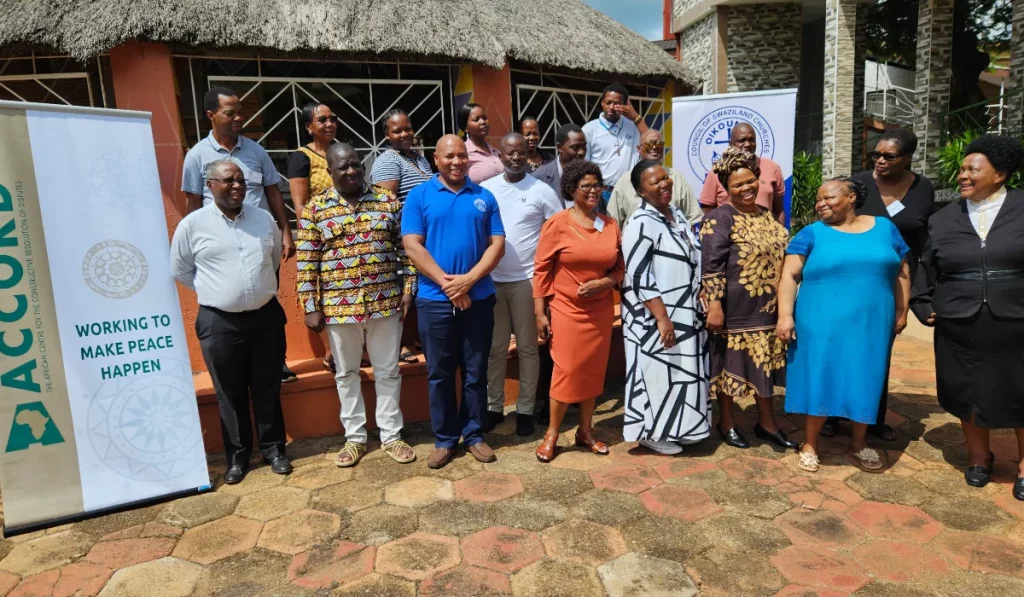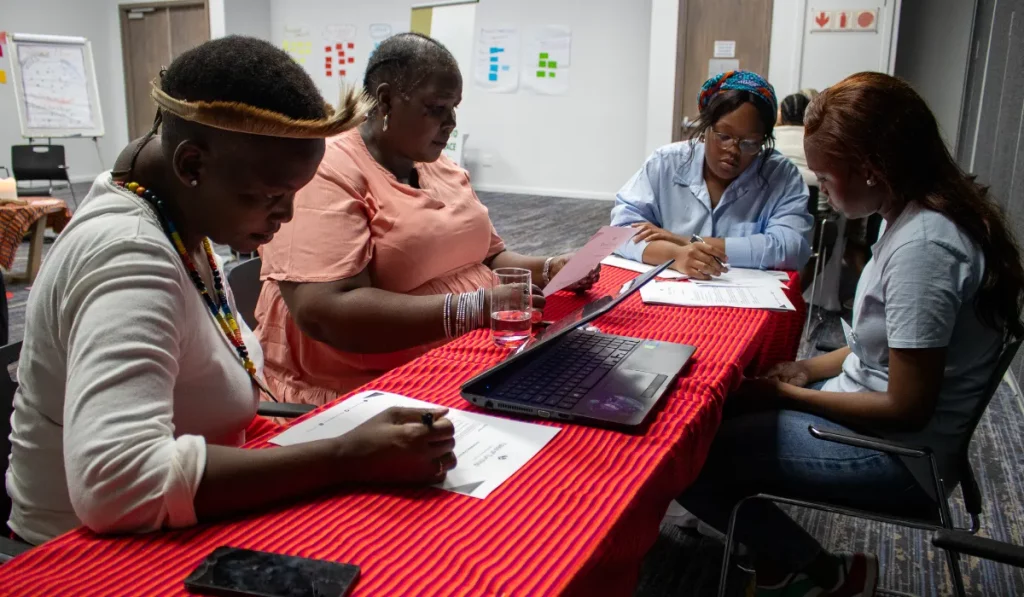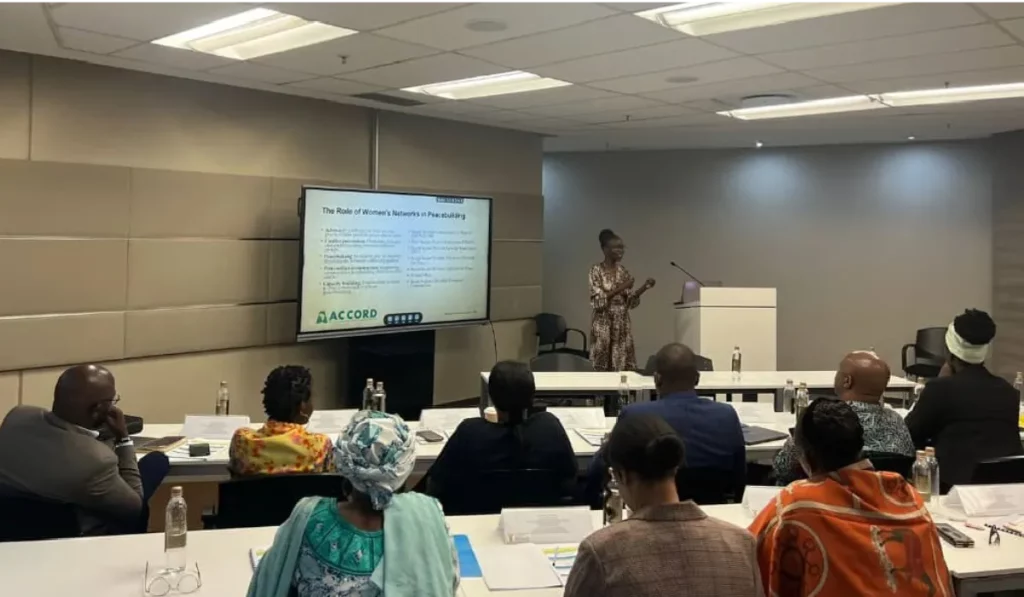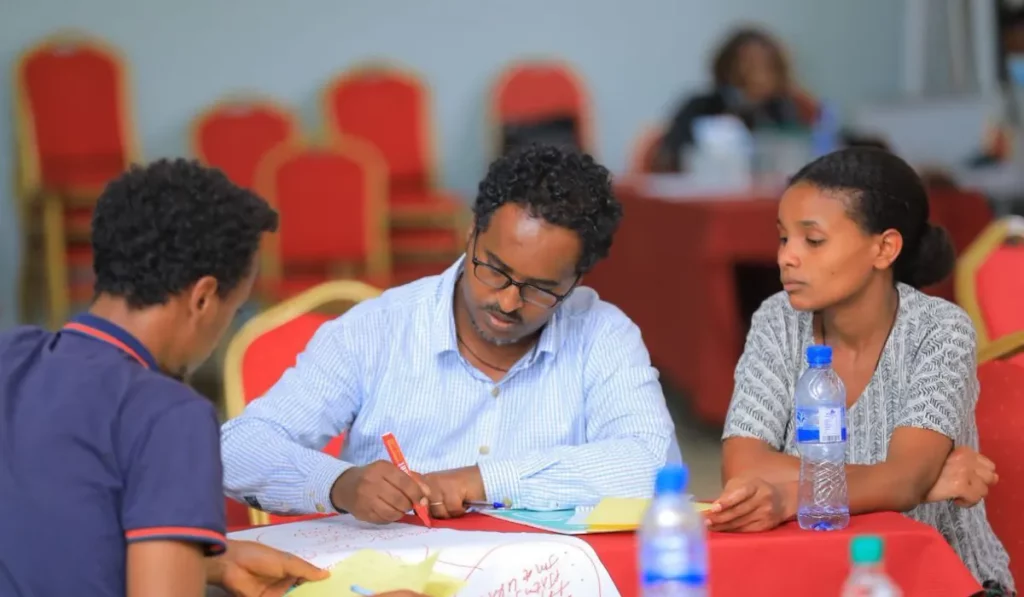During an Internal Staff Seminar held on 8 August 2012 at the ACCORD offices in Durban, ACCORD Peacekeeping Unit Intern Priyal Singh explored how private security companies working in sub-Saharan Africa facilitate direct foreign investment to oil-rich countries. He examined why the presence of crude oil, and not good governance, is a major factor in explaining high direct foreign investment into particular countries in the region.
Singh’s presentation was based on research for his M.A. dissertation titled ‘The growth of the international private security industry: A market tool to ensure market-oriented growth in sub-Saharan Africa’s ‘petro-states?’. In his study, Singh found that many of the most poorly governed states in the region are in fact the main recipients of inward foreign direct investment, on account of their large and exploitable reserves of crude oil. The growth of the international private security industry was framed as an effective causal mechanism in this context.
Private security contractors are often demobilised ex-military personnel who come together in companies and corporate entities (at times these have boards and are listed on the stock exchange). These entities are typically at the mid-point between “passive services such as home and neighbourhood security providers and ‘guns for hire’ which offer more aggressive mercenary-like services”.
In his presentation, Singh attributed the upsurge of security forces in the last 20 years to: massive downsizing and demobilisation of military personnel after the Cold War and a realisation that technical skills gained in the military could be put to good use in the private security industry; the triumph of the neo-liberal economic paradigm and the “free market”; and, lack of legitimate and effective international responses to the crises in African countries experiencing conflict.
Increasingly, foreign investors are hiring these private security contractors to protect their investments in oil and mineral-rich countries in sub-Saharan Africa, even those currently experiencing armed conflict. These deals are brokered through governments, which often make it a pre-condition that foreign investors secure and provide their own security. Singh explained that the importance of private security companies is that they make it possible for foreign investors to safely enter into, and do business with oil- and mineral-rich countries such as Angola, the Democratic Republic of the Congo and Equatorial Guinea.
He concluded by explaining that by securing foreign investment through the use of private security providers, oil-rich states are increasingly minimising the importance of good governance. He questioned what – if good governance is not actively promoted as a pre-condition of attracting investment – is the incentive for governments in sub-Saharan Africa to improve issues such as corruption and the rule of law? If a country, or certain external actors are profiting from instability and conflict, would they realistically move to end it?
Singh’s study contributes to ACCORD’s research and knowledge-sharing work around the multi-dimensional causes of conflict, and the factors that support and perpetuate conflict in Africa. Armed conflicts undermine the achievement of sustainable socio-economic development, which is a prerequisite for Africa to effectively compete in the international arena. ACCORD’s work contributes to peace and security by supporting the development and implementation of effective conflict prevention and resolution activities and, ultimately, to sustainable development on the continent.






